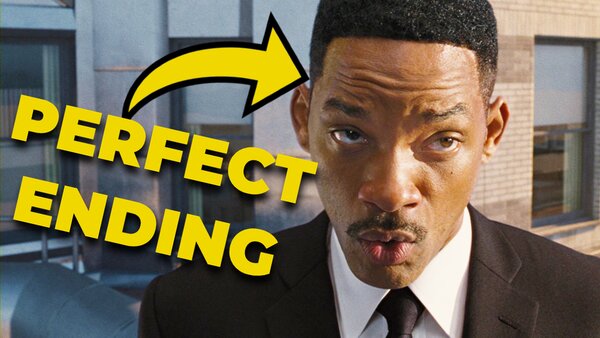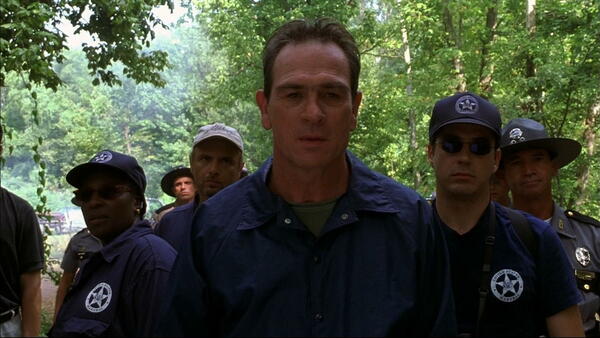10 Movie Sequels Way Better Than They Had Any Right To Be
The movie sequels that shouldn't have worked, but did.

Movie sequels get a worse rap than they arguably deserve. Although it is true that many imperious filmmaking efforts have been undermined by lesser follow-ups - not to mention the glut of IP-driven blockbusters that have arrived over the last 10 years - many undisputed classics are also sequels. Terminator 2: Judgment Day, The Godfather Part II, The Empire Strikes Back - these are all widely lauded and seminal efforts that not only proved to be worthy second chapters to their predecessors, but also arguably outshone them.
Not that it would've been the case when these films were first conceptualised - at least for some of them. While The Godfather worked as a standalone film, a sequel made sense in the context of not just its immense critical and box office success, but because of Francis Ford Coppola's renewed involvement and the organic nature of Part II's premise. The expectation was that a sequel could work because it had all the ingredients in place for it to work.
But then there are the sequels that make less sense on paper - follow-ups to standalone fare that seemingly protract a premise beyond its accepted confines. Think Jaws II and The Exorcist II: The Heretic. One of these films is infinitely more watchable than the other (and came with a brilliant tagline), but both struggle to justify their existence beyond, "Jaws and The Exorcist were immediate classics, and therefore a sequel had to be made."
Even with that said, sometimes a great sequel can materialise even when the impetus behind it isn't that compelling, defying the odds, and working way better than it had any right to. In some cases, these sequels matched or even outdid their forebears. In others, they simply managed to entertain more than they feasibly should have been able to.
So, let's hear it for the follow-ups that surpassed expectation, and either became a noted classic, a cult favourite, or a misunderstood gem. These are the movie sequels that had no right to go so hard...
10. U.S. Marshals

1993's The Fugitive is one of my favourite movies of all time. A hallowed Dad Movie classic, Andrew Davis' adaptation of the iconic 1960s TV series brought together Harrison Ford and Tommy Lee Jones for a cat-and-mouse mystery thriller all about a doctor wrongfully accused of his wife's murder. Sleek, stylish, and stupidly efficient, Davis' film rightly earned Jones an Oscar at the 67th Academy Awards for his portrayal of Deputy Marshal Samuel Gerard, the man on Ford's tail who eventually comes to realise the "why" of Richard Kimble's story is just as important as how it ends.
Even with Ford in sensational form as Kimble, Jones' Gerard was the easy highlight of The Fugitive. Flanked by supporting players like Joe Pantoliano as Cosmo Renfro, Gerard commanded the screen with machine-like authority, complemented by moments of levity between himself and the rest of his squad. This aspect of The Fugitive is more subtly brilliant than it arguably gets credit for; we spend almost as much time with Gerard as we do Kimble, and while the focus is on Ford and Jones, the latter has the benefit of a supporting ensemble who - despite brief screentime - impart a lived-in sensibility to the proceedings, something you could feasibly see expanded upon in another film.
That doesn't stop the fact that when that other film came, it was still quite unusual. Five years after the premiere of The Fugitive, Warner Bros. released U.S. Marshals, directed by Stuart Baird and featuring Jones as Gerard on the hunt for another fugitive.
In premise alone, U.S. Marshals screams redundancy. Gerard is on the hunt for another innocent-seeming man on the run, only this time we've traded the vulnerable Ford for action regular Wesley Snipes. It even functions similarly to The Fugitive in structure, with the film including an explosive escape sequence, as well as a coming-together moment where Gerard meets his prey at the climax of an initial chase.
But, despite that premise seeming quite eye-rolly at a glance, U.S. Marshals is a really good sequel. It doesn't approach the same level of craft as Davis' classic, but Baird and writer John Pogue tap into the same well and emerge with a surprisingly thrilling - if not slightly unambitious - piece of cinema. Jones is in fine form as Gerard, balancing levity while drawing greater emotional depth opposite Pantoliano, and also benefits from the addition of Robert Downey Jr. as a DSS agent on the hunt for the same man. It probably shouldn't work, but with Jones' energy to draw from, U.S. Marshals ends up being a success.